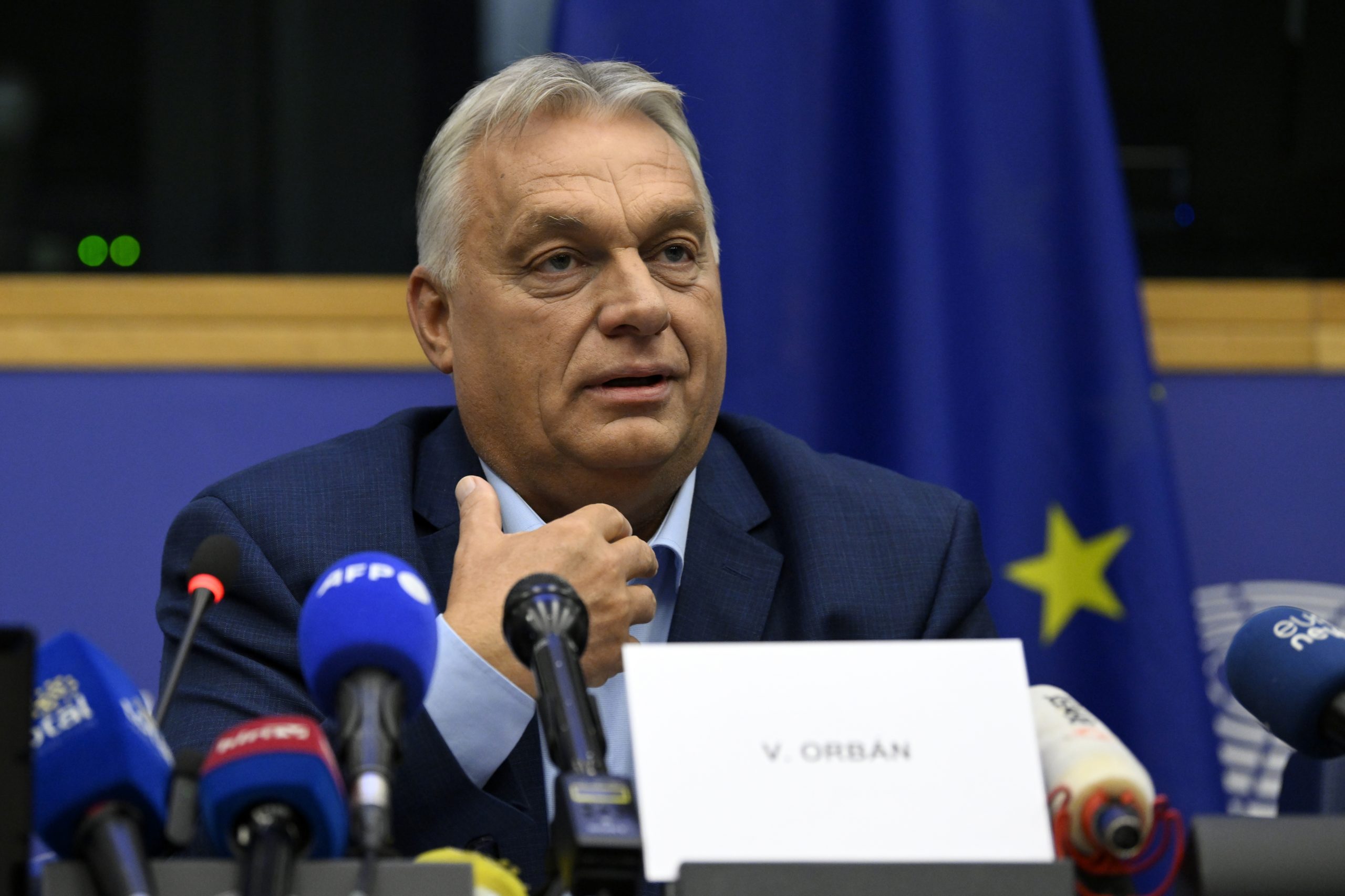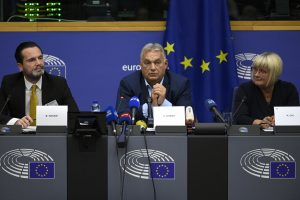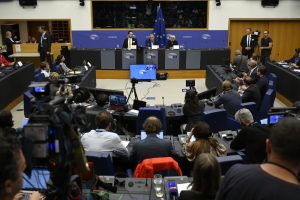
The agreement can put Europe on a stable growth path.Continue reading

Viktor Orbán held a two-hour international press conference at the European Parliament on Tuesday afternoon, before officially presenting the program of the Hungarian Presidency of the Council of the European Union in Strasbourg this morning.
At the press conference, the Prime Minister said that the situation in the European Union is more serious than it was in 2011, during the first Hungarian presidency. He pointed out that one of the most urgent challenges was the decline in European competitiveness, and indicated that the Hungarian presidency would propose the adoption of a new five-year European competitiveness pact.
He underlined that improving European competitiveness is at the heart of the Hungarian presidency’s objectives. For two decades now, economic growth has been persistently slower than in the United States or China, and world trade shares have been falling, he explained.
A full house in Strasbourg International press briefing ahead of tomorrow’s debate in the @Europarl_EN. pic.twitter.com/RjyXhlmPAl
— Orbán Viktor (@PM_ViktorOrban) October 8, 2024
Mr. Orbán added that this was compounded by adverse demographic trends in Europe.
In economic terms, this means that if we want to be competitive, we have to reckon with the fact that for the first time we are in a situation where the growth of Europe’s gross domestic product is not supported by a steady increase in the size of the workforce.”
The Hungarian presidency will propose the adoption of a new five-year European competitiveness pact at the informal meeting of European leaders in Budapest on November 8. Such a pact would enable all European leaders and countries to commit themselves to a long-term, five-year competitiveness policy, the Prime Minister said.
The competitiveness pact would include reducing administrative burdens, over-regulation, affordable energy prices, and green industrial policy. The latter should be coordinated with European industrial policy, he said. It would also include strengthening the internal market and removing barriers to the movement of goods and services, rules that alone would lose 10% of Europe’s GDP, according to the Draghi report.

Viktor Orbán at the press conference in Strasbourg on Tuesday. Next to him are Kinga Gál, chair of the Fidesz-KDNP group in the European Parliament, vice-president of the Patriots for Europe group (R) and Bertalan Havasi, press chief of the Prime Minister (L). Photo: MTI/Purger Tamás
They also propose the implementation of a capital market union, because today the savings of European people end up in the United States and the European capital market is not able to keep the money of European people here in Europe.
Finally, connectivity is also part of the pact proposal, he said, citing the absurdity of a punitive tax on Chinese electric cars as an example.
He pointed out that out of 27 Member States, 10 were in favor of a penalty tax and 17 against. The 10 states account for 45% of the total EU population, meaning that even the majority of people do not support it. “The situation is also absurd because European car manufacturers – who are supposed to be protected – are protesting against it,” he added.

Photo: MTI/Purger Tamás
On migration, Mr. Orbán stressed that since the EU does not have a successful common migration policy, Member States are trying to protect themselves individually. However, these individual attempts will destroy the Schengen system, therefore, instead “we need a big common decision.”
The Hungarian presidency proposes to introduce a system of Schengen summits. On the model of the summits of the eurozone countries, the leaders of the Schengen countries should meet regularly and, like the euro, should jointly manage the Schengen borders at the highest political level.
Mr. Orbán said that the EU’s defense policy and the strengthening of the technological base were among the priorities of the Hungarian presidency, adding that they would also be discussed at a meeting in Budapest in November. He mentioned enlargement policy as the next item on the agenda, and stressed that Europe will never be complete without the integration of the Balkans. He stressed that enlargement must be merit-based, but noted that without Serbia no enlargement would be successful, and that the Western Balkan countries cannot be integrated without Serbia.
He added that the Hungarian presidency would also talk about agriculture. The reason for this is that the planning of the directions for the seven-year budget period starting in 2027, and the definition of the agricultural policy guidelines have already begun. He stressed that the aim is to create a competitive, crisis-resilient and farmer-friendly European agriculture.
If we implement the points of the Hungarian presidency, its motto will come true: Make Europe Great Again!”
he underlined.
Via MTI, Featured image: MTI/Purger Tamás